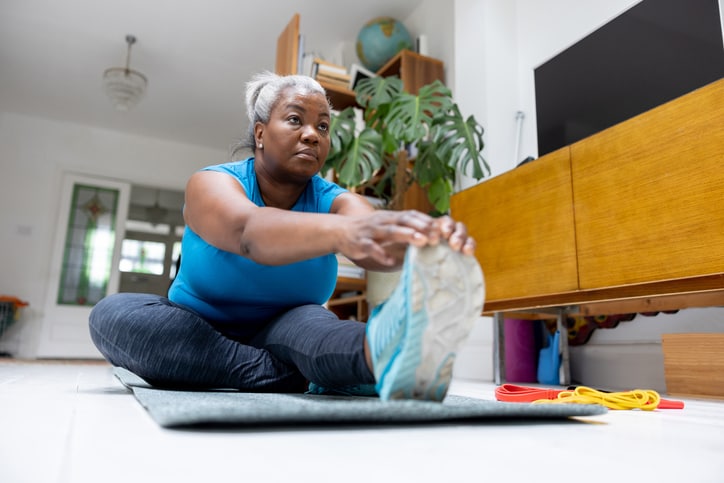When it comes to lifestyles, perspectives and everything in between, aging parents and their adult children are always going to have their differences. That’s because despite being family, being raised in completely different generations leads to varied life experiences that can have a lasting impact. And this fact is becoming increasingly apparent to Gen Xers (born between 1965-1980) as well as Millennials (born between 1981 to 1996) who are now caregiving for their boomer parents (born between 1946-1964).
Due to the wide generation and age gap between them, Xers and Millennials are no strangers to being surprised by their boomer parents as they age, explains Robin Madelain, a digital consultant and marketing strategist in the healthcare industry. These revelations are due to a “huge mental gap in terms of thinking, patterns and current trends,” she says.
We spoke to several adult kids of boomers who’ve been involved in their parents’ care — and have been caught off-guard by what they’ve learned about them along the way. Here, their biggest eye-openers.
1. They’ve become “helicopter” grandparents
While Nicole Mayer, a 38-year-old “Xennial” from Illinois, was growing up, she says that her parents weren’t particularly strict. But now that they’ve become grandparents, everything has changed. Mayer says that her parents, who are 63 and 65, think that she simply isn’t “helicopter enough” when it comes to her own kids and that they would never let their grandkids do the things they let her do as a child.
So when her dad, who has underlying conditions, was diagnosed with COVID, Mayer took a page from their book and became a “helicopter daughter” by getting him into a trial where they gave him different medications to potentially help him fight the virus.
“The doctor said it saved him from being hospitalized,” she says. “I intervened and was their advocate during that process.”
2. They’re living life in the fast lane
As 41-year-old Candice Criscione’s parents aged, she assumed they would begin to simplify their lives or at least, start to relax a bit. But she was wrong. Instead of decreasing their activity level as they aged, she’s surprised to see that they seem busier than ever — both socially and physically.
“I’ve always imagined aging means slowing down. I pictured my parents spending time reading, sitting on the deck, watching the world pass by,” she says. “Even though that’s what it used to be, I think my parents and their generation worked so hard, and now, they want to play.”
Instead of staying at home knitting or watching TV, Criscione says her parents, who split their time between Washington and Arizona, play golf and tennis, go on long hikes, ride bicycles, garden, do home repairs and “pretty much go non-stop from sunrise to sunset.” They also enjoy parties with friends, go on long road trips and travel internationally.
“I had once worried about them being bored as they aged. Now, I worry that they’re doing too much — I’m in my early 40s, and they make me feel lazy.”
— CANDICE CRISCIONE
With this constant activity level, Criscione says she’s had to step in and encourage her parents to keep their age in mind when filling their schedules. “I have to beg my almost 75-year-old father to stay off the roof,” she says. “I told my mom she shouldn’t feel bad if she takes a day off from exercising. I had once worried about them being bored as they aged. Now, I worry that they’re doing too much — I’m in my early 40s, and they make me feel lazy.”
And despite the worry that their high-energy golden years bring their daughter sometimes, she knows it also has its perks: the chance to make some priceless memories with their grandsons who are 7 months, 3 and 7 years old. “It’s also fun to watch them experience life with my kids,” she says. “Today, my dad and the older boys had a squirt gun fight, played hide and seek, tag and hunted for golf balls in the woods.”
3. Their finances are in disarray
Cameron Huddleston was just 35, working full-time and raising two children when her mom was diagnosed with Alzheimer’s at the age of 65. At that time, Huddleston, who is now 48 and lives in Kentucky, stepped in to help with her care because her mom was living on her own following her parent’s divorce and her father’s death.
“She continued to live independently for about two years after her diagnosis then lived with my family for two years before I moved her into a memory care facility so she could get round-the-clock professional care,” says Huddleston, a family finance expert with Carefull. “While she was in the memory care facility, I managed all of her finances, oversaw her healthcare and, of course, visited her frequently.”
After her mom passed in January 2021, Huddleston was left “having to play detective” to figure out what types of accounts and assets her mom had. Thankfully she uncovered an investment account worth $50K that she was able to cash out and put toward the accumulated $500,000 cost of memory care.
4. Their health is changing on a dime
Bret Clapier says the biggest surprises he’s encountered with his boomer parents have been health-related. His dad, who is now 69, developed wet macular degeneration, an eye disease, and Parkinson’s just in the past few years.
“My dad went from fully functional to needing significant assistance in such a short time that all of us kids were shocked.”
— BRET CLAPIER
“He went from fully functional to needing significant assistance in such a short time that all of us kids were shocked,” explains the 29-year-old from Utah. “We didn’t have much time to prepare for his health challenges and are now playing catch up.”
5. They have no end-of-life plans
The number one thing that has floored Jaclyn Strauss as an adult child to boomer parents, who are 70 and 73, is how they have no emergency or end-of-life plans in place. The 41-year-old from Florida admits that she knows that the end-of-life “conversation” is one that families typically shy away from. However, as a CPA, she also understands the importance of this and simply can’t believe how ill-prepared her parents are, especially given how “the current climate has made this topic one that cannot be ignored.”
Plus, the last year has taught her that tomorrow is never promised, so she began pushing to get her parents’ essential documents organized. She used an online digital organization tool to aid in the process. Now, both she and her parents have peace of mind.
6. They’re also struggling with depression and anxiety
Sofia Celestino says the mental health challenges her boomer parents have been facing have come as a surprise. The 34-year-old realizes that as they were growing up and in their younger adulthood, her parents didn’t get the opportunity to confront or deal with anxiety issues like younger generations. Instead, they were “just encouraged to get on with it,” says Celestino. “Now, they have more time on their hands to think about the past. The scars of the past will always be there and will affect your life somehow.”
“They have more time on their hands to think about the past.”
— SOFIA CELESTINO
That said, it’s heartening to know that boomer parents have Gen X and Millennial kids for support when it comes to their mental, financial or overall well-being.





